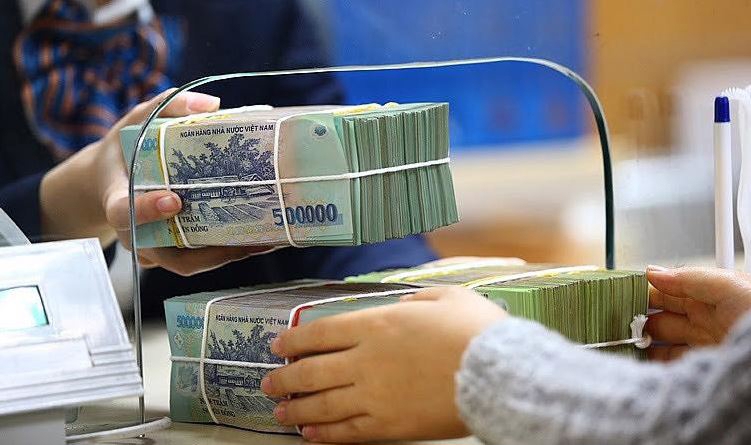Prime Minister Pham Minh Chinh on July 6 signed official dispatch No. 104/CD-TTg on enhancing the efficiency of monetary and fiscal policy management in the remaining months of 2025 and the review of the work in the first half of the year.
In his dispatch, the Prime Minister, as quoted by the Vietnam News Agency, tasked the State Bank of Vietnam (SBV) with coordinating with relevant agencies to closely monitor global and domestic economic developments and proactively, flexibly, and effectively manage the monetary policy in line with macroeconomic conditions and monetary policy objectives, as outlined in the Government’s Resolution No. 154/NQ-CP dated May 31, 2025, regular cabinet meetings’ resolutions, and the PM’s directives.
The agencies were also requested to ensure close coordination with fiscal and other macroeconomic policies to promote growth, control inflation, maintain macroeconomic stability, and ensure major economic balances.
Meanwhile, credit institutions were asked to continue cutting costs, streamlining administrative procedures, and accelerating digital transformation to lower lending interest rates and support production and business activities of enterprises and individuals in the spirit of "harmonizing benefits, and sharing risks."
Under the dispatch, credit should be channeled into priority sectors, traditional growth drivers such as investment, exports, and consumption, as well as emerging growth motivations like science and technology, innovation, digital economy, green economy, and circular economy.
The PM also requested the agencies to take measures to handle and prevent bad debts, aiming for a credit growth target of around 16% in 2025. By 2026, credit growth management is expected to transition to a market-based mechanism, eliminating credit quotas.
They were required to manage the exchange rate in a flexible manner, ensuring a reasonable balance between the interest rates and exchange rates; keep a close watch on domestic and international economic and financial developments, especially policy adjustments by the US Federal Reserve (Fed) and other central banks; improve the quality of analysis and forecasting, and respond with timely and effective policies and have timely and effective policy responses; and diversify foreign currency supply channels, stabilize the value of the Vietnamese dong and improve the balance of international payments.
The agencies were demanded to urgently review, analyses, and assess impacts; study international practices and urgently consider removing administrative tools in credit growth management through allocating credit growth targets to each credit institution; transfer credit growth management to market mechanisms and assess risks of each credit institution, develop a set of criteria for credit safety control, ensure proactive, timely and effective credit capital allocation, contributing to promoting sustainable economic growth associated with macroeconomic stability, safety of the credit institution system, national financial and monetary security.
The review and proposal must be completed by July 2025.
The PM requested accelerating credit programs for people under 35 to buy, rent, or lease-purchase social houses; the VND500-trillion (more than $19.1 billion) credit package for businesses investing in infrastructure, science and technology, innovation, and digital transformation; and a credit program to support the production, processing, and consumption value chain of high-quality, low-emission rice in the Mekong Delta.
The agencies were asked to strengthen timely and effective measures to manage the gold market, and urgently submit to the Government a decree to amend Decree No. 24/2012/ND-CP on gold trading management before July 15, 2025.
Regarding the fiscal policy, the PM assigned the Ministry of Finance to coordinate with relevant agencies to continue implementing a reasonable, focused, and key expansionary fiscal policy, closely coordinating, harmonizing, and effectively coordinating with monetary and other macroeconomic policies; strengthen state budget revenue management; modernize tax administration and strictly enforce regulations on e-invoices generated from cash registers; strive to increase state budget revenue in 2025 by at least 20% compared to the projected estimate, and save an additional 10% in regular spending for the remaining months of 2025, in line with the Government’s directive.
Other key directives include ensuring timely and adequate funding for policy implementation under Decree No. 178/2024/ND-CP and Decree No. 67/2025/ND-CP, as well as for tasks related to the reorganization of administrative units and the rollout of the two-tier local administration model; effectively implementing policies on tax, fee, and land rent exemptions, reductions, and deferrals, along with other support mechanisms to facilitate businesses and people; developing effective mechanisms to attract selective foreign investment, with a focus on promoting and drawing in large-scale, high-tech FDI projects; and promptly addressing difficulties and obstacles faced by FDI enterprises.
The PM also asked for the implementation of necessary measures to upgrade Vietnam’s stock market from the frontier status to an emerging market; must urgently submit to the Government draft decrees detailing the implementation of laws and resolutions related to the financial sector passed at the 9th session of the 15th National Assembly; and review and assess the impact of the US’s reciprocal tax policy on Vietnam, and develop support policies for businesses and laborers in sectors affected by the US tariffs, with a report to be submitted to competent authorities before July 15, 2025.
The PM urged ministries, agencies, and localities to proactively monitor domestic and international developments; give timely, appropriate, and effective policy response; and prepare contingency plans to avoid passivity or surprises. They were requested to take stronger, more decisive action to accelerate public investment disbursement, aiming to fully disburse the 2025 public investment budget assigned by the PM; increase total social investment capital by 11–12% compared to 2024; urgently resolve long-standing and stalled projects to free up resources and prevent wastefulness.
He called for efforts to develop the 2026–2030 medium-term public investment plan, with capital allocation to be concentrated, prioritized, and strictly non-fragmented. The total number of centrally funded projects in this period must be capped at 3,000.
Relevant agencies must also actively prepare for the implementation of national key projects and major projects planned for the 2026–2030 period, the dispatch noted.









 Google translate
Google translate